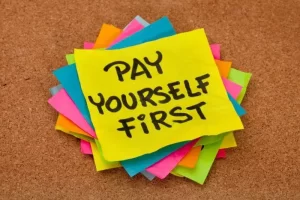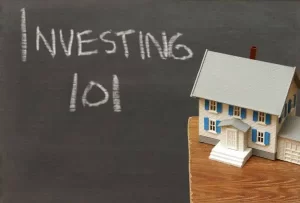
How to Handle Emergencies and Unexpected Situations When Living Independently at 18
Becoming independent at 18 is a significant milestone in many people’s lives. Discover practical skills and insights to gain confidence in handling emergencies when living independently at 18.
According to the U.S. Census Bureau, in 2019, approximately 9.7 million young adults aged 18 to 24 lived independently in the United States. This is a major increase from past years, with more young adults choosing to move out of their parent’s homes and live on their own.
While living independently can be exciting, it also comes with its challenges. One of the most significant challenges young adults face when living independently is handling emergencies and unexpected situations.
According to a survey by the American Red Cross, only 26% of young adults aged 18 to 24 feel well-prepared for emergencies.
Emergencies can range from natural disasters like hurricanes and earthquakes to personal emergencies like medical emergencies and accidents. Preparing for these situations is essential to ensure your safety and well-being.
Being prepared can mean the difference between life and death in some cases. By preparing for emergencies and unexpected situations, you can feel confident and empowered to handle whatever comes your way.
How to Handle Emergencies When Living Independently at 18.
Identifying potential emergencies:
Living independently for the first time at 18 can be exciting and daunting. However, do you know how to survive alone without family?
As you navigate this new chapter of your life, it’s important to be aware of potential emergencies and how to respond to them.
Here are some key points to remember when identifying potential emergencies:
Common emergencies that can occur when living independently:
- Fire or smoke
- Medical emergencies, including injuries or illnesses
- Power outages
- Water leaks or flooding
- Gas leaks
- Break-ins or thefts
Understanding the Severity of Emergencies

It’s important to distinguish between minor incidents and true emergencies. A broken dish, for example, is not an emergency, while a severe injury or a fire is.
Understanding the severity of emergencies will help you determine the appropriate response and avoid panic.
Identifying Potential Risks in Your Living Situation
Take the time to assess your living situation and identify any potential risks. For example:
- Are there smoke detectors and fire extinguishers in the home?
- Is there a first aid kit readily available?
- Are there any tripping hazards, such as loose rugs or cluttered pathways?
- Are there any potential sources of gas leaks, such as a gas stove?
- Are there any electrical hazards, such as frayed cords or overloaded outlets?
- Are any areas of the home particularly vulnerable to break-ins, such as ground-level windows?
By being aware of potential emergencies and taking steps to prevent them, you can feel more confident and secure as you embark on this new phase of your life.
It’s also important to have a plan for responding to emergencies, such as knowing where to find emergency services and having emergency contact numbers readily available.
Preparing for Emergencies at Home to Stay Safe When Living Alone
Living alone can be rewarding, but it also comes with challenges, including the need to be prepared for emergencies.
Whether it’s a natural disaster, a medical emergency, or a home invasion, being prepared can help you stay safe and manage the situation until help arrives.
Here are three key steps to prepare for emergencies at home when living alone.
How Do You Stay Safe If You Live Alone
Creating an Emergency Kit
An emergency kit is a collection of essential items you’ll need. Your kit should include basic first-aid supplies, such as bandages, gauze, disinfectant, and any medications you take regularly.
It would help to have enough food and water to last at least three days, a flashlight with extra batteries, a portable radio, and a whistle to signal for help.
Other items that may be useful include a fire extinguisher, a multipurpose tool, and a blanket. Keep your emergency kit in an easily accessible location, such as a closet or bed.
Knowing emergency numbers and contacts
To stay safe when living alone, ensure you know your area’s emergency phone numbers, including the police, fire department, and ambulance service.
You should also have the contact information for your doctor, your preferred hospital, and any family or friends who live nearby.
Consider programming these numbers into your phone or writing them down and keeping them in a visible location.
Developing an Emergency Plan
In addition to having an emergency kit and knowing who to call, developing an emergency plan is important. This plan should outline what you’ll do in emergencies, such as a fire, a flood, or a medical emergency.
Ensure you know how to evacuate your home quickly and safely and identify a safe place to go in case you need to leave. If you have pets, make sure you also have a plan for them.
Practice your emergency plan regularly so that you’re prepared to take action quickly if an emergency arises.
Preparing for emergencies when living alone is crucial to your safety and well-being.
By creating an emergency kit, knowing emergency numbers and contacts, and developing an emergency plan, you can ensure you’re ready for anything. Remember, it’s always better to be prepared than caught off guard.
Learn CPR
Learning CPR (Cardiopulmonary Resuscitation) is necessary because it gives you life-saving skills to respond immediately when a person is in cardiac arrest situations.
The equipment provides chest compressions and can rescue an individual from death.
Having CPR knowledge and administering it in an emergency can help maintain blood flow and oxygenation to important organs until health professional help arrives.
It significantly increases the chances of a person’s survival and can make a difference between life and death.
Set Up an Emergency Fund
Keeping an emergency fund for several reasons is important when living by yourself. It is a known fact when transitioning into adulthood comes with newfound responsibilities and financial obligations, making preparing for unexpected emergencies essential.
Firstly, an emergency fund gives you a financial safety net during an unplanned event, such as a car breakdown needing repairs, medical prescription bills, or sudden job loss.
It acts as a cushion to help you cover such expenses.
Without an emergency fund in place, you may be forced to rely on credit cards or loans, which leads to more debt accumulation.
This could cause a huge financial strain in the long run. With a dedicated fund set explicitly for emergencies, you can avoid falling into a cycle of debt and maintain financial stability.
Responding to Emergencies at Home

Living independently at 18 can be exciting, but it’s also important to be ready for emergencies while living alone. Whether it’s a medical emergency, a natural disaster, or a home invasion, knowing how to respond can help keep you safe.
Here are four key steps to responding to emergencies at home when living by yourself:
Staying Calm
The first step in responding to an emergency is to stay calm. Panic can worsen a bad situation and prevent you from thinking clearly. Take deep breaths and focus on the situation at hand. Remember that you have prepared for this, and you have the skills to handle it.
Following your Emergency Plan
If you have an emergency plan, now is the time to implement it. Your plan should outline what to do in emergencies, such as a fire, a flood, or a medical emergency.
Follow your plan carefully and be prepared to adapt it as necessary based on the circumstances.
Evacuating if necessary
In some emergencies, you may need to evacuate your home. If so, grab your emergency kit and any other essential items and leave immediately. Let someone know about your whereabouts and when you expect to return. Please only attempt to re-enter your home once it is safe.
Living Independently Skills
Being able to respond to emergencies is just one part of living independently. Basic life skills such as cooking, cleaning, and budgeting are also important.
Ensure you know how to operate essential appliances, such as your stove, oven, and washing machine, and keep your living space tidy and organized to reduce the risk of accidents or injury.
If you have a plan in place and remain organized, it will be easy to follow the plan and figure out how to handle emergencies when living independently at 18 in your home.
Dealing with unexpected situations

Life is unpredictable and unexpected situations can occur at any time. While some unexpected situations can be minor, others can be more serious and require immediate attention.
Here are three key steps to dealing with unexpected situations:
Understanding the Difference between Emergencies and Unexpected Situations
It’s important to differentiate between emergencies and unexpected situations when living alone. Emergencies are immediate, life-threatening situations that require urgent action, such as a fire or a medical emergency.
On the other hand, unexpected situations may not be life-threatening but still require your attention, such as a sudden change in your work schedule or a flat tire on your car.
Understanding the difference can help you prioritize your response and avoid unnecessary panic.
Identifying Potential Unexpected Situations
While it’s impossible to predict every unexpected situation, there are some common scenarios you can prepare for.
For example, losing your keys, encountering unexpected traffic, or experiencing a power outage are all situations that can happen without warning.
By anticipating potential unexpected situations, you can develop strategies to deal with them when they occur.
Responding to Unexpected Situations
When unexpected situations arise, the key is to remain calm and take action. If it’s a minor situation, such as losing your keys, take a few deep breaths and try to retrace your steps.
If it’s a more serious situation, such as a sudden illness, assess it and take appropriate action, such as calling for medical help or contacting a friend or family member.
When in doubt, don’t hesitate to ask for help or advice.
Wrap-up on How to Handle Emergencies When Living Independently at 18
In conclusion, preparing for emergencies and unexpected situations is essential for anyone living on your own, particularly for young adults just starting independently.
Following the tips outlined above, you can be better prepared to handle emergencies, stay safe, and protect your well-being.
Remember to have an emergency kit, know your emergency contacts, have a plan in place, learn basic first aid, keep your phone charged, stay informed, and most importantly, don’t panic.
These steps may seem small, but they can make a big difference in an emergency.
By being proactive and prepared, you can gain peace of mind and feel confident handling unexpected situations when living independently at 18.































